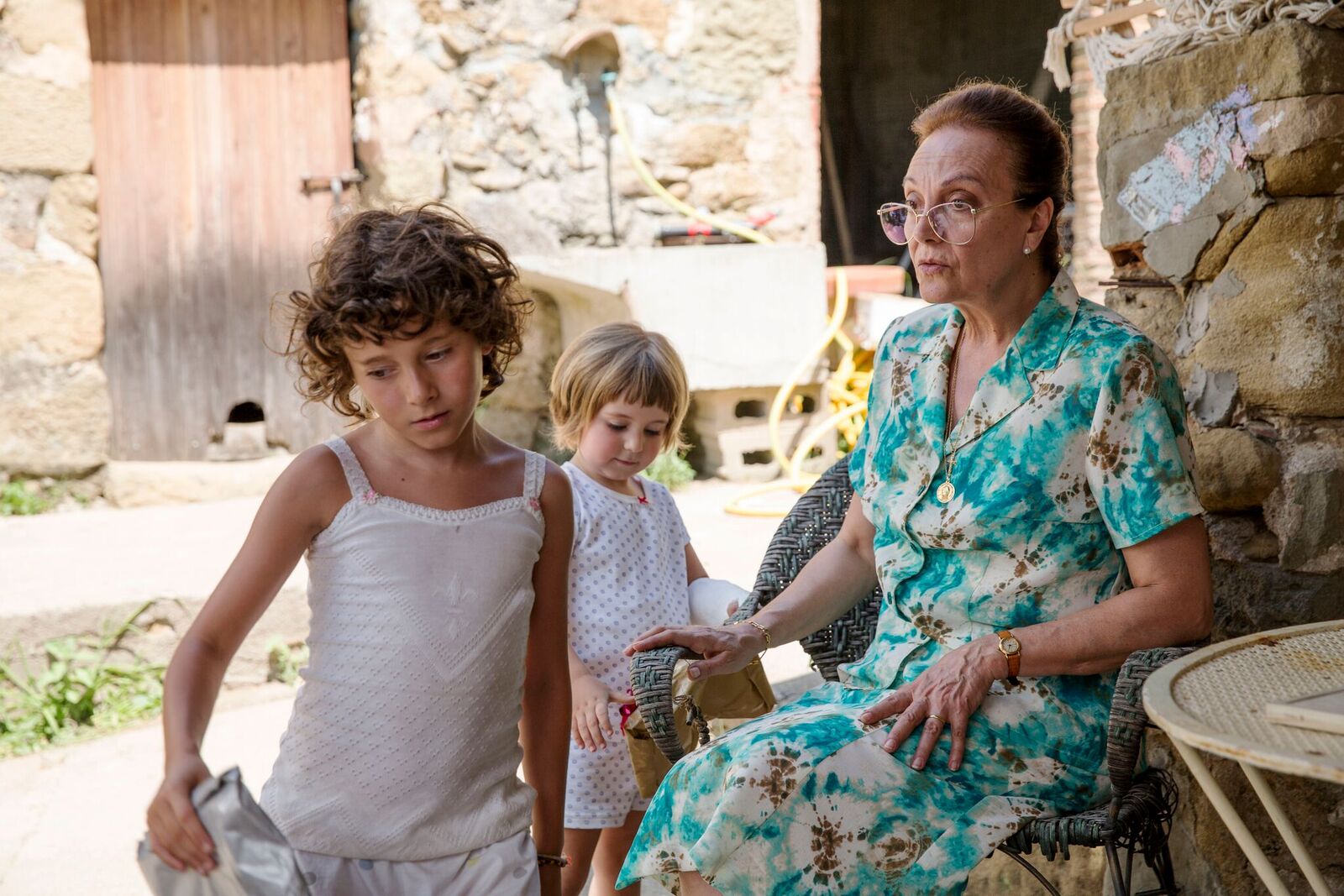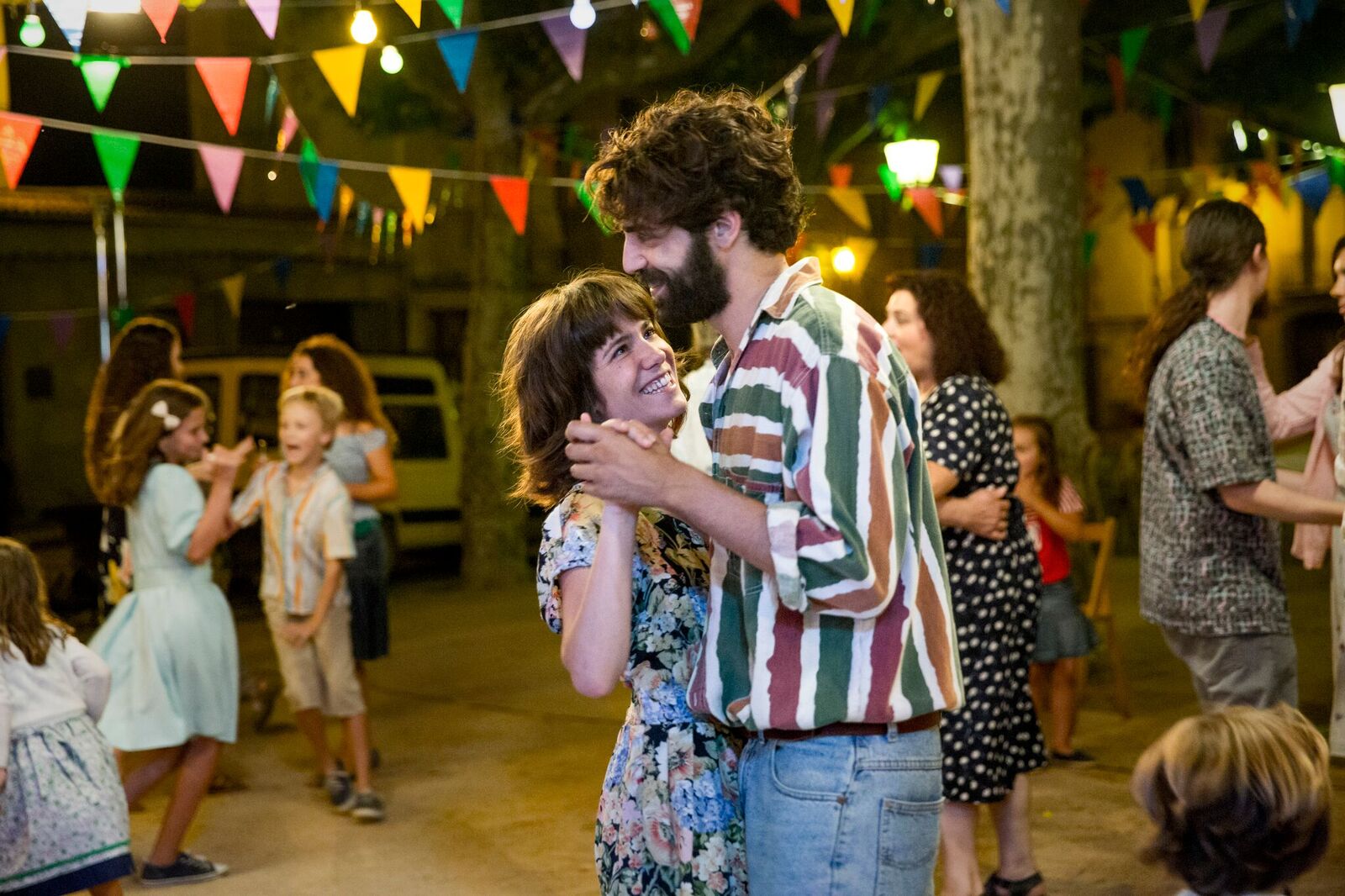Carla Simón’s debut feature Summer 1993 is a gem of a film by any standards, but when you learn that its story is based closely on the thirtysomething Catalan director’s own early life, its intimacy becomes almost overwhelming. It has at its heart a simply terrific performance from Laia Artigas as Simón’s six-year-old heroine Frida, the intonations of her face conveying variations of emotion that are powerful beyond anything words could achieve.
Following in the tradition of cinema about childhood, we experience events as much through Frida’s eyes as we do from any knowing, adult perspective. The script is based on the subtlest of suggestions, and plot spoilers best resisted: the less we register the objective circumstances of what’s happening, the truer our immersion in the young girl’s developing world becomes.
Simón avoids any element of sentimentality that could have easily entered her story
Simón opens her film with an ending, as Frida observes the adults around her, whom she barely seems to register as individuals, packing up an apartment: she’s departing the familiar environment in which she has grown up, a big city world defined by some opening-scene fireworks. But this is no celebration, as she says her goodbyes to family members, led by her old-fashioned grandmother Maria (Isabel Rocatti, pictured below), who has clearly taught her the reassurance of religion – the Lord’s Prayer, in particular – as a way of dealing with tribulation. Then she’s bundled away by her uncle Esteve (David Verdaguer) and his wife Marga (Bruna Cusí).
Hints about the past come gradually and only allusively, establishing that Frida’s mother has died (mentions of her father are even more oblique). She has now gone to live with her closest relatives in their home in the remote countryside, joining her four-year-old cousin Anna (Paula Robles). This pueblo environment may seem idyllic – it’s summer, and life is lived in the open air, with a slowness that allows everything to become a discovery for the child – but the repercussions of Frida’s grief prove complex, not least for the family unit into which she has moved. She’s still at the stage in grief where the finality of loss has yet to sink in, so a tiny forest shrine to the Virgin becomes almost a place of communion with her dead mother. As new confidence slowly builds, it’s accompanied by a kind of wilful petulance expressed particularly towards Anna; the younger girl’s unquestioning place in the world into which she was born becomes a temptation for Frida’s challenges. It’s a dynamic registered particularly keenly by Marga, and Cusí is outstanding in expressing a mother’s conflicting emotions, care for the vulnerable new arrival alongside frustration at how her own child’s world is being disturbed.
She’s still at the stage in grief where the finality of loss has yet to sink in, so a tiny forest shrine to the Virgin becomes almost a place of communion with her dead mother. As new confidence slowly builds, it’s accompanied by a kind of wilful petulance expressed particularly towards Anna; the younger girl’s unquestioning place in the world into which she was born becomes a temptation for Frida’s challenges. It’s a dynamic registered particularly keenly by Marga, and Cusí is outstanding in expressing a mother’s conflicting emotions, care for the vulnerable new arrival alongside frustration at how her own child’s world is being disturbed.
There are issues in the wider world that the family inhabits, too, the unspoken innuendos of small community life revealing particular concerns. Simón sketches that situation subtly, barely mentioning details (which are not hard to guess, anyway). Most impressively, she avoids any element of sentimentality that could have easily entered her story, making the glances and silences of her cast so poignantly revealing. The script achieves a subtle linkage between its plot elements, as a motif from one scene – for example, whether Frida can tie her shoelaces – is reprised, with some small modification, at a later moment. It can be so elliptical as to be almost unnoticeable, but builds up a web of allusions. Summer 1993 catches that wonderful sense of how a child explores and experiences a new world, felt especially strongly here for its rural environment. It’s a profoundly humanistic film, bringing home powerfully the sheer achievement of parenthood, as well as how the surrounding society – this Catalan world with its festivities and traditions – comes through to show its implicit tolerance. (Pictured above: Bruna Cusí as Marga, David Verdaguer as Esteve)
Summer 1993 catches that wonderful sense of how a child explores and experiences a new world, felt especially strongly here for its rural environment. It’s a profoundly humanistic film, bringing home powerfully the sheer achievement of parenthood, as well as how the surrounding society – this Catalan world with its festivities and traditions – comes through to show its implicit tolerance. (Pictured above: Bruna Cusí as Marga, David Verdaguer as Esteve)
Films based on such childhood experience sometimes centre on the rite of passage itself, and for some viewers the inclusion of the defining year in the title here may seem extraneous. Yet it suggests details that surely speak strongly to the audience of its homeland: Summer 1993 was Spain’s foreign-language Oscar entry this year, proving that cinema there retains rather more tolerance than politics. It’s there especially in the distinction between generations, between the grandparents set in their earlier ways and the younger adults, for whom the Spanish Transition had a particular impact, whether for the circumstances that took Frida’s mother, or the impetus that sent her uncle back to his neo-rural world.
There are times when cinematographer Santiago Racaj literally take us down to Frida’s level, using his camera to catch the world through her eyes, and giving it a sense of being a living entity in its own right, as the child surely perceives it. Knowing that the film’s locations include those in which the director grew up brings home how this very particular story speaks in the very widest terms. Simón’s achievement in drawing these performances from her young cast, Artigas in particular, can hardly be praised too highly. A small, but very special film.















Add comment